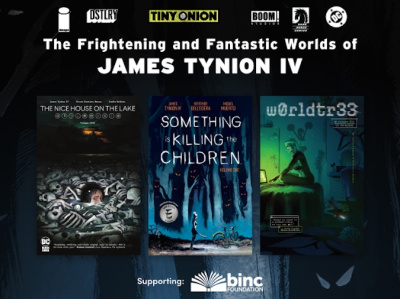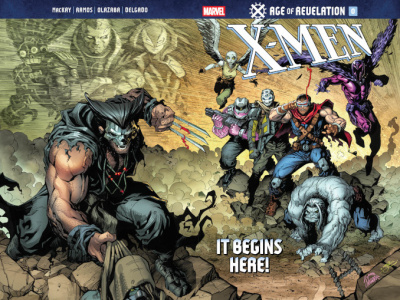
The Comic Book Legal Defense Fund and the Comics Legends Legal Defense Fund report that the Canadian government has dropped all criminal charges against Ryan Matheson (previously referred to as “Brandon X”), an American computer programmer whose laptop was seized by Canadian customs officials when he traveled to Canada from the U.S. in 2010 (see “CBLDF To Defend American Charged in Canada”). In a plea bargain deal that resulted in the dropping of all criminal charges Matheson pled guilty to a non-criminal code regulatory offense under the Customs act of Canada and will not stand trial. The case led the CBLDF to release an outreach ad to warn consumers about the kind of invasion of privacy rights they might not be expecting, such as laptop, tablet, and computer searches conducted by customs officials when people are traveling internationally (see “They’re Not Just Looking for Bombs Anymore”).
Matheson’s defense cost $75,000. The CBDLF helped by recruiting expert witnesses for the trial and providing $20,000, while the Comic Legends Legal Defense contributed $11,000, but that still leaves Matheson with nearly $45,000 in debts relating to the case. The CBLDF is currently seeking funds to help pay off Matheson’s debt and to create new tools to prevent future cases.
Now that the case has been settled the details of Matheson’s arrest and detention have come out. Matheson was subjected to abusive treatment by the police when jailed and then placed under harsh bail conditions. His life was severely disrupted for two years during which was unable to use computers or the Internet outside of his job because of the strict conditions of his bail.
In an accompanying statement Matheson described his situation: “I was given extraordinarily strict bail conditions considering it was my first offense of any kind and I had a totally clean record. My bail conditions tightly restricted my use of computers and the Internet. My conditions had even specifically named a single company I could work for, which prevented me from advancing my professional career. I am a computer programmer and I’ve been in love with computers ever since I was seven years old. To place such overbearing conditions on me was heart-wrenching and very difficult to endure. Even for people who do not have a life and career based on computers, I believe completely restricting Internet access is wrong; too many things in life and society nowadays rely on the Internet. In my opinion, it’s like restricting use of basic utilities like water and electricity.”
Matheson also describes his longstanding interest in manga and anime, which had led him to study Japanese language and culture: “This case was important to me. Japanese animation and manga are something I hold precious. I first got into anime when I was about eight years old by watching Sailor Moon and Dragon Ball Z that aired on TV at the time. Soon after I started reading manga with my first volume of Ranma and began drawing my own illustrations and making my own animation flipbooks. To this day I still draw and have attended art and drawing classes. I have been studying Japanese since high school. To have this healthy and fulfilling hobby of mine deemed “unfavorable,” “deviant” or “criminal” by ignorant government officials is insulting and degrading not only to me, but also to the millions of fellow fans who take part in enjoying this art. After going through such a challenging and difficult period of my life, my own convictions about what anime and manga mean to me have become stronger than ever before.”
At last the image that Canadian Customs found so objectionable has been identified publicly, a moe-style parody of a classic Japanese wood block prints called the “48 Positions,” which were wrestling positions in the original classic print and rendered as sexual positions in the parody. As anyone familiar with manga and anime knows “moe” refers to cute, often diminutive characters, which undoubtedly led the overzealous customs officials to suspect child pornography, though it is totally obvious that no underage models were used to create the illustration, which contains very little detail in the rendering of the sexual acts.
CBLDF Executive Director Charles Brownstein expressed his pleasure at the outcome of the legal proceedings: “This is a good outcome, and we’re glad we were able to contribute to it. While one always wants to be able to change the rules in court, those opportunities are rare, and in this case, the defense’s extraordinary effort in persuading the Crown to drop criminal charges is a very positive conclusion. We are now focusing our efforts on raising money to help pay off Ryan’s legal debt. We are also working with Ryan and experts in the manga community to create educational tools to help prevent others from needing to go through anything like this themselves. We hope that people will donate to the CBLDF to help us achieve these goals quickly.”








